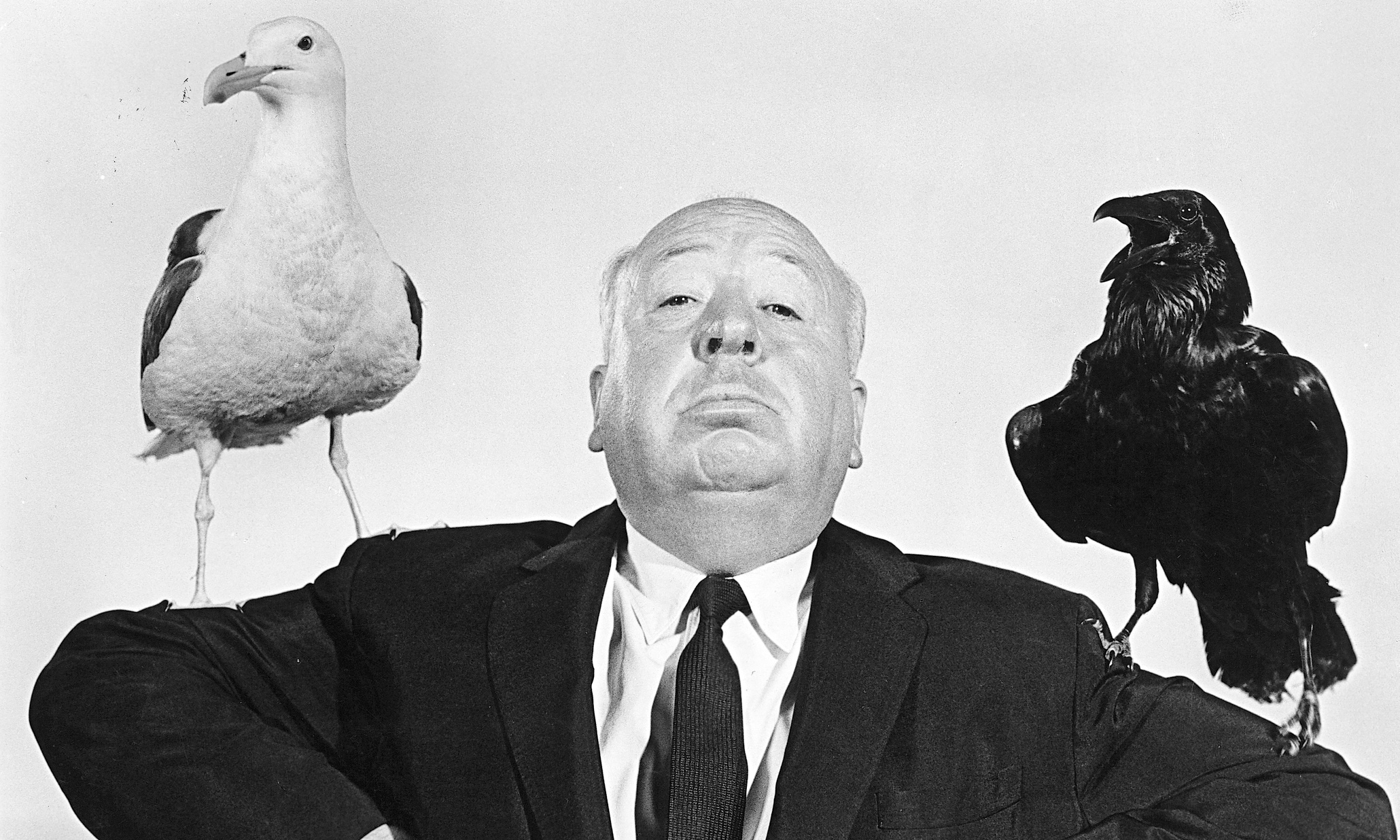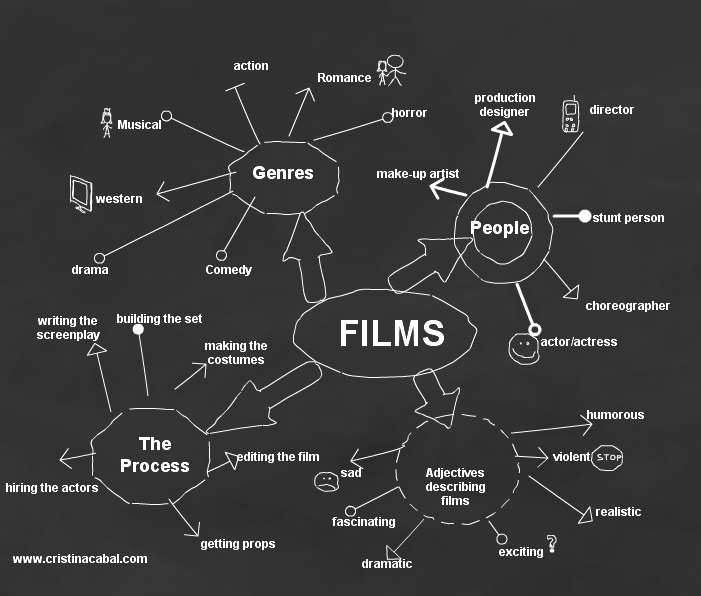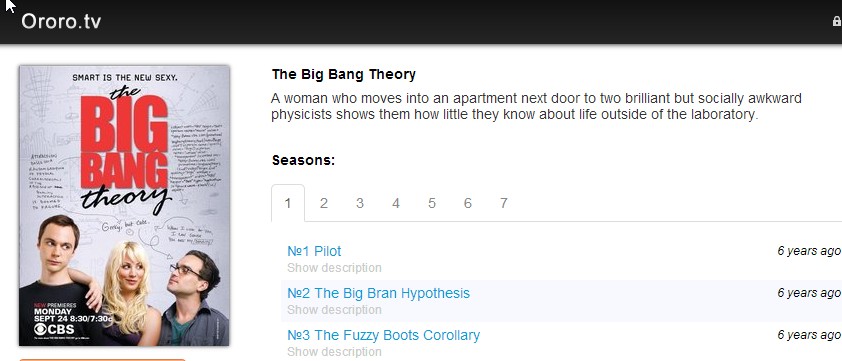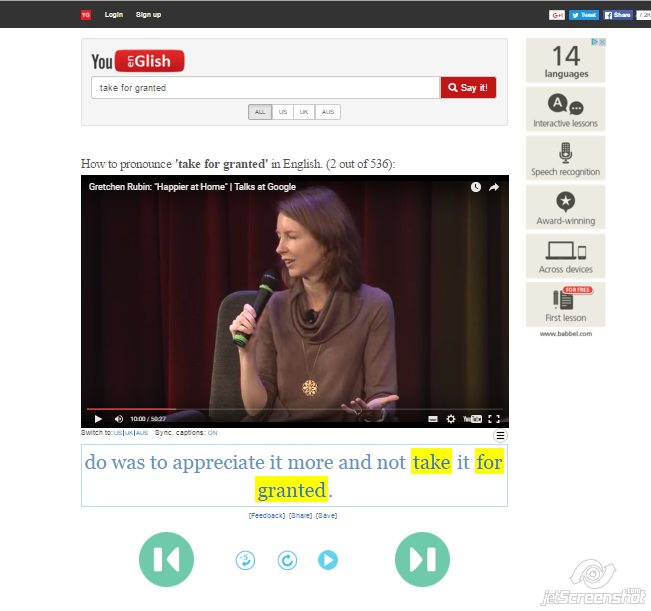When I was a kid in my hometown, a little village in the north of Spain, there used to be a cinema. Not any more and not for a long time. In fact, it seems to me there are very few towns or even cities which still have a cinema and I’m not talking about the outdoor cinemas, which are so popular in summer, I am talking about the real thing. Cinemas with endless rows of seats smelling oldish and where the usher always told you off before you even got to your seat and started cracking up. I remember we didn’t get to see the latest films until they were 4 or 5 years old and then, they were not new any more as our friends from the capital city kindly reminded us rolling their eyes in disbelief when they came on holiday, but all the same it brings back very good memories. I must be getting old!
So today I’m sharing with you an engaging lesson with lots of activities around the theme of films and the cinema. Hope you enjoy it!

This lesson is aimed at students with a language level of B2 (upper-intermediate) and focuses on revising, learning and using vocabulary related to films and the cinema through a variety of engaging activities which will help them improve listening, writing and speaking.
Activity 1. Warming-up. Learning and using vocabulary.
Step 1.Wordcloud.
Display the word cloud and ask students to guess the topic. Click on the words you want to highlight and ask students to guess meanings and try to use them in a sentence. Alternatively, you can choose the latest box-office hit and ask students to give you a sentence about this film containing the targeted word.
Step 2. Mind mapping. Handout with vocabulary here
Ask students to work in pairs. Write on the board a mind map as the one below (give them only the words inside the circles) to help them revise vocabulary related to this thematic area. Allow them some minutes to complete their mind maps and get feedback from the whole class, completing the mind map on the board with their suggestions.

- Exercise on types of films here
- A crossword with film words here
Activity 2. A game.
The class is divided into two groups. In turns, one member from each group sits on the Hot Chair facing away from the whiteboard. The members of their group have one minute to describe the film being displayed without mentioning the title ( that goes without saying, but just in case, I’m saying it). The aim is to guess as many films as possible in one minute. Then, it’s the other team’s turn.
They will need to talk about:
Kind of film/ Nationality of the film/ director/ plot/
Some hints:
♥The film ‘_______’ is a(n) _______ film which takes place in _______.
♥The film is set in __(ancient Greece)__.
♥The story is based on __(a popular novel)__.
♥The film is directed by _______.
♥The main character(s) in the film is/are _______.
♥_______ is a character who _______.
♥__(Johnny Depp)__ stars as __(Captain Sparks)__.
♥In the film, __(Jack Black)__ plays __(a rock guitarist). The story is about _______
♥The best scene of the film is_____

Activity 3. A listening : interview with Hitchcock talking about his film Psycho.
Ask students: What kind of films do you like? Do you have a favourite director?
Write on the board Alfred Hitchcock and Psycho and ask students if they know who he is and if they know any of his films. Students most probably will have heard about Hitchcock and seen some of his films, but in case they haven’t, tell them Hitchcock is considered “the master of suspense” and “Psycho”(1960) s is arguably Hitchcock’s best-known film.
Play the video and ask students to answer the questions. (Find the answers at the end of this post).
- What’s Hitchcock’s opinion of films such as Frankenstein?
- What’s his idea of a horror film?
- When he made Psycho, did he have a mind a horror film or an amusing film?
- Was the film “Psycho” a very violent film? If not, why did it make people scream? Explain in your own words.
Activity 4. Speaking.
Ask students to work in pairs or in small groups and answer the following questions.
Activity 5. Writing a film review.
Handout with the task and useful vocabulary and expressions to use in your review.
Blog de Cristina is also on facebook. Follow us!

Answers to the listening
- What’s Hitchcock’s opinion of films such as Frankenstein?He thinks they are very easy to make and that they are props.
- What’s his idea of a horror film?
He believes in putting the horror in the mind of the audience and not necessarily on the screen.
- When he made Psycho, did he have a mind a horror film or an amusing film?
An amusing film
- Was the film “Psycho” a very violent film? If not, why did it make people scream? Explain in your own words.
There is only one violent scene in the film, which is at the beginning when the girl is violently murdered in the shower. As the film developed, there is less and less violence. The horror and the tension are transferred to the mind of the viewers, which are the end of the film are screaming.
Tools used
Tagul, Hot Potatoes, Picture Trail, Thematic








